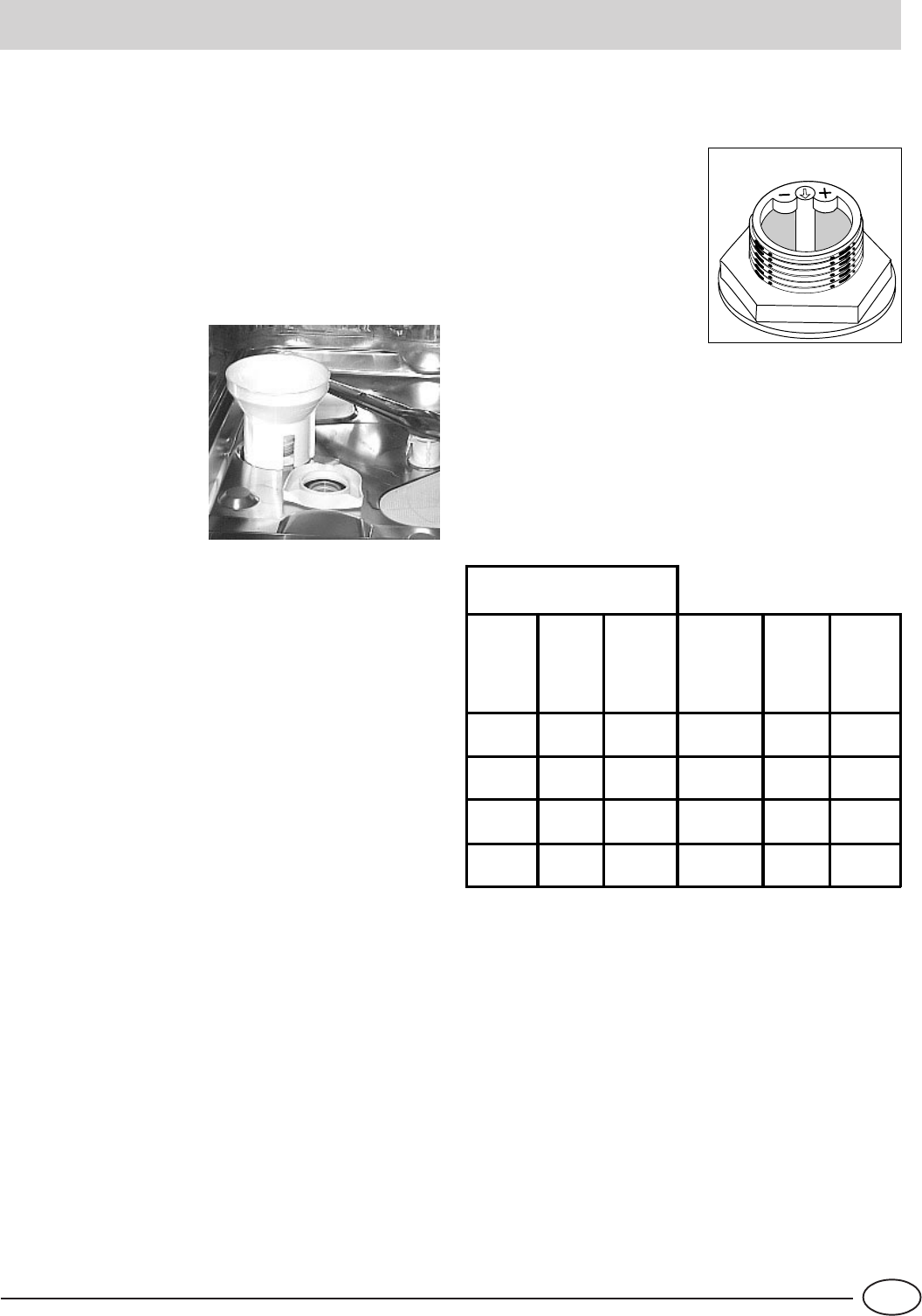
3
GB
Salt .......
Salt
The hardness of the water varies from place to place. If
hard water is used in the dishwasher, deposits will form on
the dishes and utensils.
The appliance is equipped with a special softener that uses
a salt specifically designed to eliminate lime and minerals
from the water.
Loading the Salt into the Softener
Always use salt intended for use with dishwashers.
The salt container is
located beneath the lower
rack and should be filled
as follows:
1. Remove the lower rack
and then unscrew and
remove the cap from the
salt container;
2. If you are filling the
container for the first time,
fill it with water;
3. Place the end of the
funnel (supplied) into the
hole and introduce about
2 kg of salt. It is normal for a small amount of water to
come out of the salt container.
4. Carefully screw the cap back on.
Low Salt Indicator
This green device is located at the centre of the cap for the
decalcification cartridge and it indicates whether the container
is full.
When the indicator is not visible it means that the supply of
salt must be replenished .
To prevent the formation of rust, load the salt just before
beginning a wash cycle.
Adjusting Salt Consumption
The dishwasher is designed to allow for adjusting the amount
of salt consumed based on the
harness of the water used. This
is intended to optimize and cus-
tomize the level of salt con-
sumption so that it remains at a
minimum.
Your Local Water Board can
supply the degree of hardness
of the water
in your area.
To adjust salt consumption, pro-
ceed as follows:
1) Unscrew the cap from the salt container.
2) There is a ring on the container with an arrow on it (see
figure to the side), if necessary, rotate the ring in the anti-
clockwise direction from the "_" setting towards the "+"
sign, based on the hardness of the water being used.
It is recommended that adjustments be made in accord-
ance with the following schema:
Water Hardness
Clarke
degrees
°fH mmol/l
Selector
position
Salt
consu-
mption
(grams/-
cycle)
Autono-
my
(cycles\2-
kg)
0 - 14 0 - 17 0 -1,7 / 0 /
14 - 36 18 - 44 1,8 - 4,4 "-" 20 60
36 - 71 45 - 89 4,5 - 8,9 MED 40 40
>71 > 89 > 8,9 "+" 60 25


















